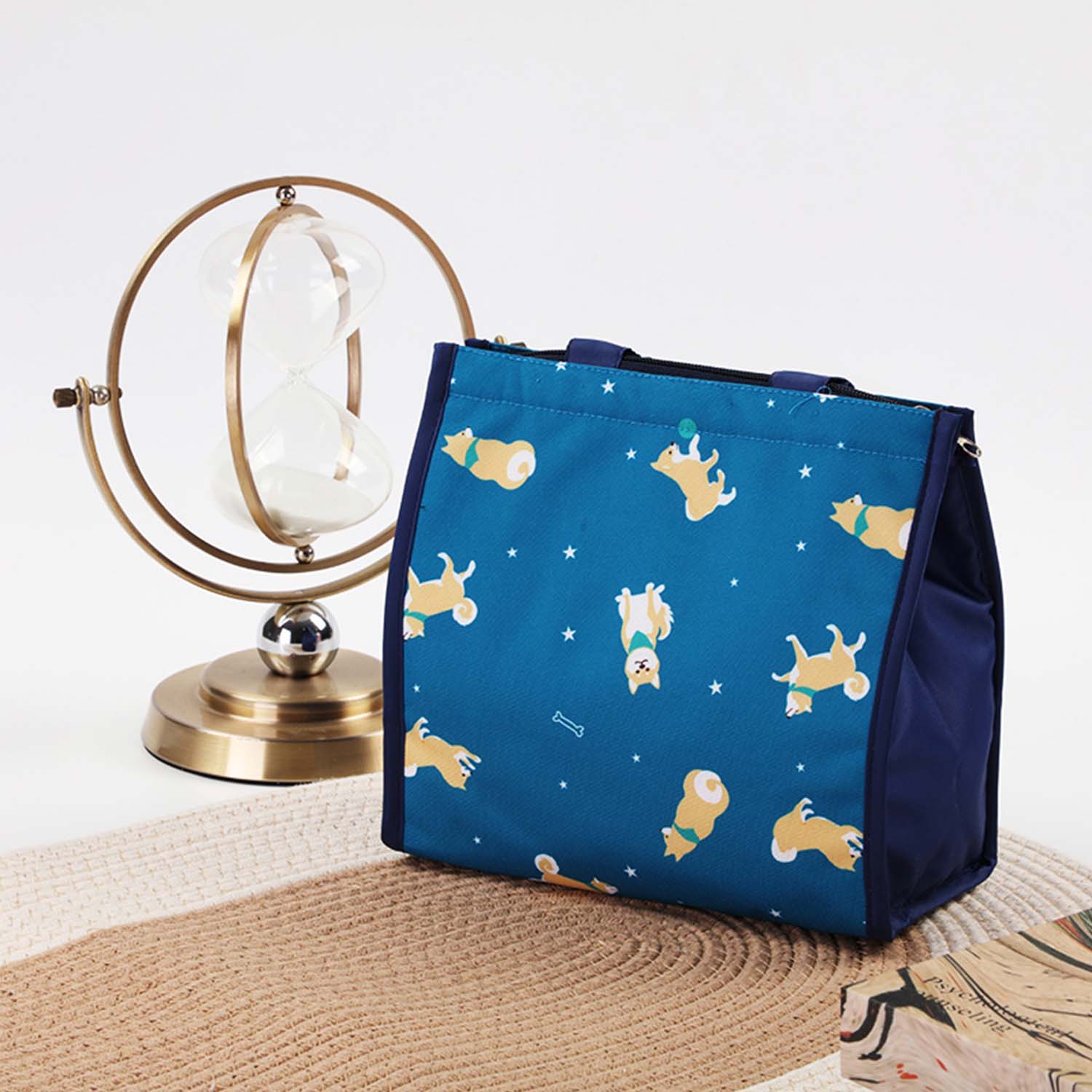How effective are the insulated bento picnic bags in preserving the freshness of food items over extended periods?
Insulation Quality: The quality and type of insulation material used in insulated bento picnic bags are critical factors influencing their ability to preserve food freshness. High-quality insulation typically includes materials such as closed-cell foam, insulated linings with reflective layers like aluminum foil, or advanced thermal insulation technologies. These materials create a barrier that minimizes heat transfer between the bag's interior and the external environment. Thicker insulation generally provides better thermal resistance, maintaining food temperatures closer to their original state for longer durations.
Construction and Sealing: Beyond insulation, the construction and sealing mechanisms of the bag play a pivotal role in freshness preservation. Well-designed bags feature reinforced seams, robust zippers, and effective closure systems such as Velcro strips or magnetic snaps. These elements ensure a tight seal, minimizing air leakage that can compromise temperature stability. Bags with compartments or dividers that securely hold bento boxes or containers help maintain food integrity by preventing movement that could disturb temperature equilibrium.
Usage Practices: Optimal usage practices enhance the effectiveness of insulated bags in preserving food freshness. Pre-chilling or pre-warming the bag before packing helps align its internal temperature with the intended food temperature, whether hot or cold. Using appropriate ice packs, gel packs, or thermal hot packs strategically placed around food containers further extends freshness by regulating temperature fluctuations inside the bag. Packing food items tightly and efficiently reduces air pockets, which can accelerate temperature loss.
Environmental Factors: The performance of insulated bags can be significantly affected by external environmental conditions. Direct exposure to sunlight increases the bag's internal temperature, potentially compromising the freshness of chilled foods. High ambient temperatures or extreme cold can also challenge the bag's insulation capabilities. Choosing bags made from UV-resistant materials and minimizing prolonged exposure to harsh weather conditions can help maintain internal temperatures more effectively over time.
Duration of Freshness: While insulated bags are designed to keep food fresh for several hours, the duration can vary based on insulation quality, external conditions, and initial food temperatures. Bags with superior insulation can maintain safe food temperatures for extended periods, often ranging from 4-6 hours or more. Understanding the bag's specific insulation rating or performance metrics provided by the manufacturer helps set realistic expectations regarding freshness preservation, especially for longer outings or trips.
Food Type Considerations: Different types of foods have distinct temperature maintenance requirements. Hot foods require bags that effectively retain heat, preventing them from cooling too quickly. Bags with thermal compartments or insulation designed specifically for hot items help maintain food temperatures above safe thresholds. Conversely, bags for cold foods should offer insulation that minimizes heat ingress, keeping perishable items chilled and fresh. Some bags feature dual compartments or removable inserts that cater to both hot and cold foods simultaneously, providing versatility for various culinary needs.


 English
English 日本語
日本語












